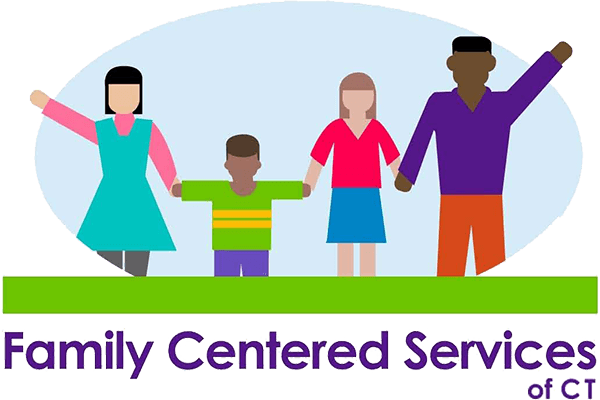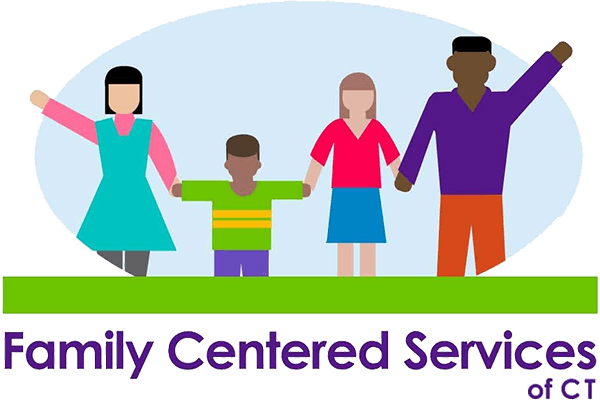Facts About Abuse and Neglect
To identify, stop and prevent child abuse and neglect, we must first define the problem.
The National Clearinghouse on Child Abuse and Neglect defines child abuse and neglect as:
- Any …act or failure to act on the part of a parent or caretaker which results in death, serious physical or emotional harm, sexual abuse or exploitation; or
- An act or failure to act which presents an imminent risk of serious harm
- The CT Department of Children and Families website describes abuse and neglect:
a non-accidental injury to a child which, regardless of motive, is inflicted or allowed to be inflicted by the person responsible for the child’s care and
includes:
- any injury which is at variance with the history given
- maltreatment such as, but not limited to, malnutrition, sexual molestation, deprivation of necessities, emotional maltreatment or cruel punishment
- What else do we need to understand about child abuse and neglect?
Neglect is the failure, whether intentional or not, of the person responsible for the child’s care to provide and maintain adequate food, clothing, medical care, supervision and/or education. A child may be found neglected who:
- has been abandoned
- is being denied proper care and attention physically, educationally, emotionally, or morally
- is being permitted to live under conditions, circumstances or associations injurious to his well-being
- is being abused.
The statistics can feel overwhelming.
In Connecticut State fiscal year 2008, the CT Department of Children and Families fielded over 68,000 allegations of child abuse and neglect, accepted over 24,000 reports and substantiated 17,437.
If you or someone you know needs help navigating a difficult home life, Contact Us here. Learn about our many impactful programs and services by visiting our Programs page here.
- These Problems Have Solutions. Here’s How You Can Help:
At Family CT, we develop programs to reduce risk and increase protective factors to prevent child abuse and neglect. We make home visitations and use evidence-based parenting education curricula to increase knowledge of child development and improve positive parenting practices and strengthen the nurturing bonds between parents and children. We help families to identify and develop support networks and assist them to obtain the concrete supports they need such as food and diapers.
Everyone can help – including you. Research has shown that support from family, friends, neighbors and communities can be essential in helping parents develop safe and healthy homes for their children. Volunteer at a local school or community organization. Assist your friends and family members by babysitting or helping with chores or errands. Know how to identify and report signs of abuse or neglect so a family will get help. Make a donation to your local child abuse prevention agency.
For more information on child abuse prevention, visit the Child Welfare Information Gateway at http://www.childwelfare.gov/ and Prevent Child Abuse America at https://preventchildabuse.org/.
- Reporting Child Abuse and Neglect
Anyone can report suspected child abuse and neglect. Anyone who makes a report in good faith and who has reasonable grounds for making the report has immunity from civil or criminal liability. Making a report of child abuse or neglect can help protect a child and get needed services to the family.
Reports of child abuse and neglect should not be made to Family CT. In Connecticut, the single point of contact for reporting abuse or neglect is the Department of Children and Families Hotline at (800) 842-2288. The Hotline is available always available – 24 hours per day, seven days per week. If you wish to ask about services for yourself and your family, you can call the Information and Referral line at the same phone number, available Monday-Friday, 8:30-5:00 pm. For fuller information about identifying and reporting abuse, access the DCF website by clicking here.
- Get Help for Yourself
In Connecticut, if you would like to request help for yourself and your family, contact Infoline by dialing 211 on your telephone. Infoline has information about parenting classes in your area and other parenting and family supports including help to meet basic needs such as food and diaper banks. If you disclose abuse or neglect to certain professionals who regularly work with children, they may be required to make a report to the CT Department of Children and Families. You can also call Childhelp®, a national organization that provides crisis assistance and other counseling and referral services. This national child abuse hotline is staffed 24 hours a day, 7 days a week, with professional crisis counselors who have access to a database of 55,000 emergency, social service, and support resources. All calls are anonymous. Contact them at 1-800-4-A-CHILD. (1-800-422-4453).
If you feel that you need immediate help to avoid injuring your child, call a friend, neighbor, church member, or anyone who may be able to give you encouragement and respite. Make sure your child is in a safe place and, without leaving the house, give yourself a break. Practice deep breathing or visualization. Play soft music. Take a shower. When things are calm, make a plan of how you will handle this situation the next time. Taking care of children can be challenging!
Where child abuse or neglect occurs, broader domestic violence can happen too. Understanding the differences and similarities is an important step in stopping and preventing all forms of in-home abuse.
- Child Abduction Prevention
GENERAL TIPS TO KEEP YOUR CHILDREN SAFER
- Know where your children are at all times.
- Never leave children unattended in an automobile.
- Be involved in your children’s activities.
- Listen to your children. Pay attention if they tell you they don’t want to be with someone or go somewhere. That may be a clue that something is wrong.
- Notice when someone shows your children a great deal of attention or gives them gifts.
- Teach your children that they have the right to say NO to any unwelcome or uncomfortable touch or actions by others.
- Be sensitive to changes in your children’s behavior or attitude. Encourage open communication. Pay attention to clues that something may be troubling your children.
- Practice safety skills with your children. Create experiences in which your children can practice using pay phones, using the restroom with a friend, and locating adults who can help them if they need assistance.
- Remember that there is no substitute for your attention and supervision.
Source: https://uwc.211ct.org/child-abduction-prevention/
For more information, contact 1-800-THE-LOST (1-800-843-5678) or go to www.missingkids.com.

